Hyperpigmentation Unravelled: What Causes It And How Should You Treat It?
Are you witnessing dark spots on your face? Chances are high you might be having hyperpigmentation. It results majorly due to excessive sun exposure.
As you age, it's normal to see certain areas on your face develop darker shades than others. Known as hyperpigmentation, it is when specific patches of skin have more melanin- color producing pigment than normal. Hyperpigmented skin may range from small, barely visible dark spots to massive patches of brown-gray, blotchy skin. According to their nature, the spots are known under various names like age spots, liver spots, sunspots, solar lentigines, or post-inflammatory hyperpigmentation (PIH).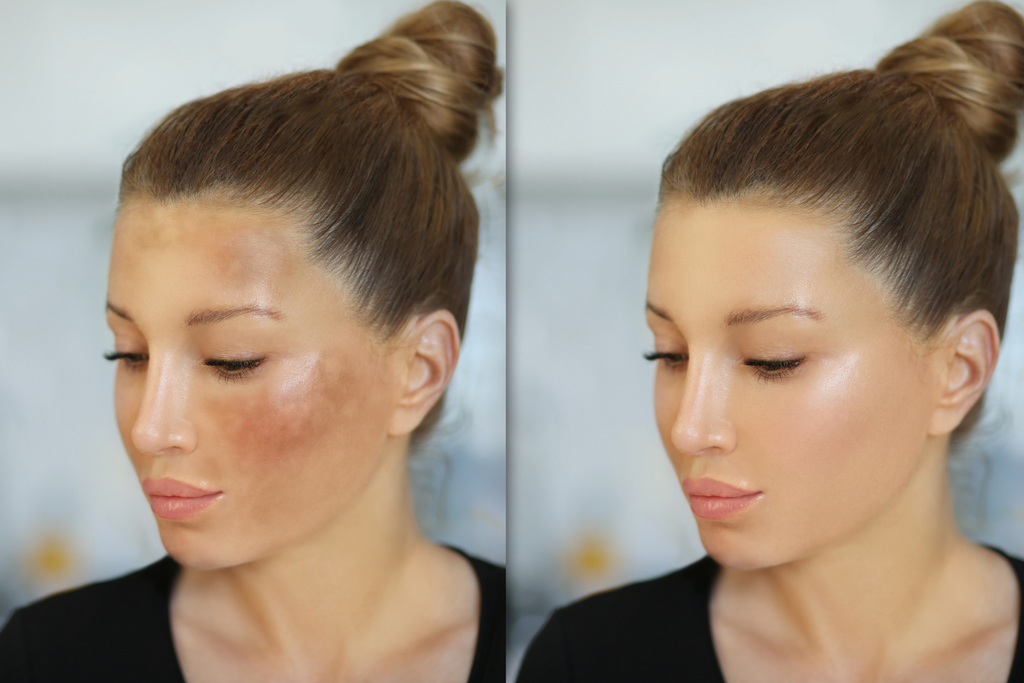
Hyperpigmentation could result due to sun exposure, injuries to the face, a medical issue, or a result of certain medications. While it's not an illness that requires medical attention, it may be a good idea to consider treatment for cosmetic reasons. The treatment of hyperpigmentation can be an exhausting process. A variety of scientifically-backed solutions can be found to improve the appearance of your skin and make dark hyperpigmented skin patches less noticeable. People of all skin tones and ethnicities may experience hyperpigmentation, but it is more prevalent for darker skin types.
Continue reading the article to learn more about its symptoms, causes and treatment options including some home remedies.
7 Common Causes Of Hyperpigmentation
Many causes can trigger your skin's ability to develop pigmentation and dark patches. Below you can find seven major causes of hyperpigmentation:
● Sun Exposure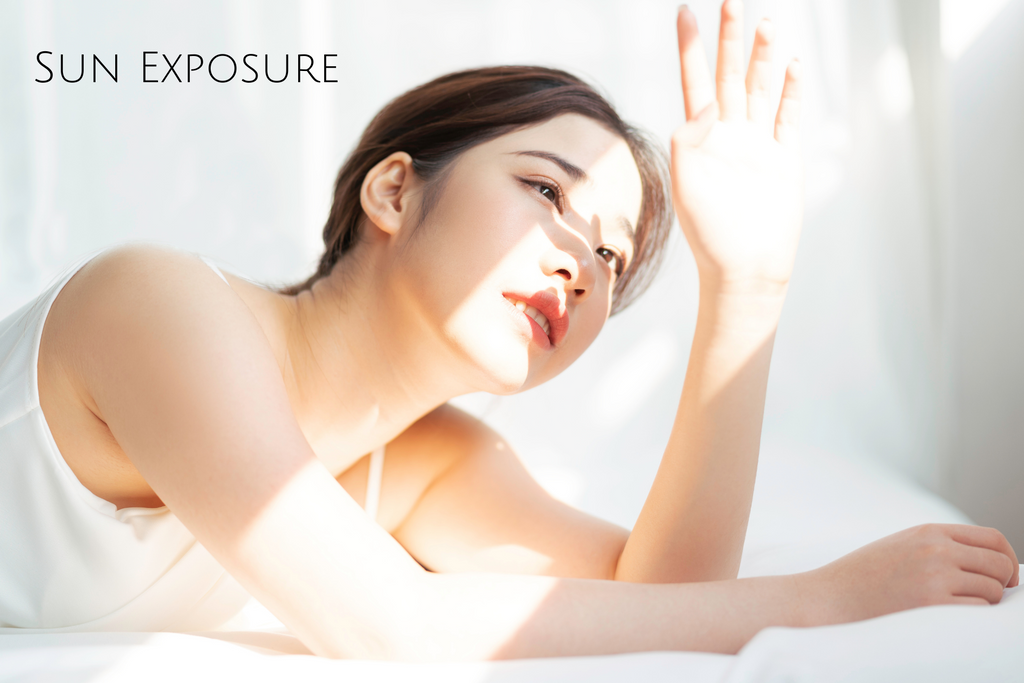
Hyperpigmentation can be attributed to excessive exposure to the sun. The sun triggers melanin production, and prolonged exposure can disrupt the process, causing hyperpigmentation. Excessive exposure to sunlight is among the most common causes of hyperpigmentation. But it's also among the most avoidable. If you're sitting outside in the sun, it is beaming down UV rays that stimulate melanin production in the skin. Sun exposure can stop melanin production normally and triggers it to produce excessive amounts of melanin, resulting in the appearance of darker brown spots of hyperpigmentation.
● Aging
Our skin undergoes many changes as we age, one being a decline in producing melanin cells. While you may believe that decreasing these cells would prevent hyperpigmentation, it results in the opposite. As the cells count decreases, the remaining ones increase in size and are more concentrated in particular regions, leading to dark patches.
● Hormones
Hormonal changes, particularly during pregnancy or birth control, are the most common causes of melasma. This is because Oestrogen and progesterone increase melanin production during these cycles, especially when the skin is exposed to the sun.
● Skin injuries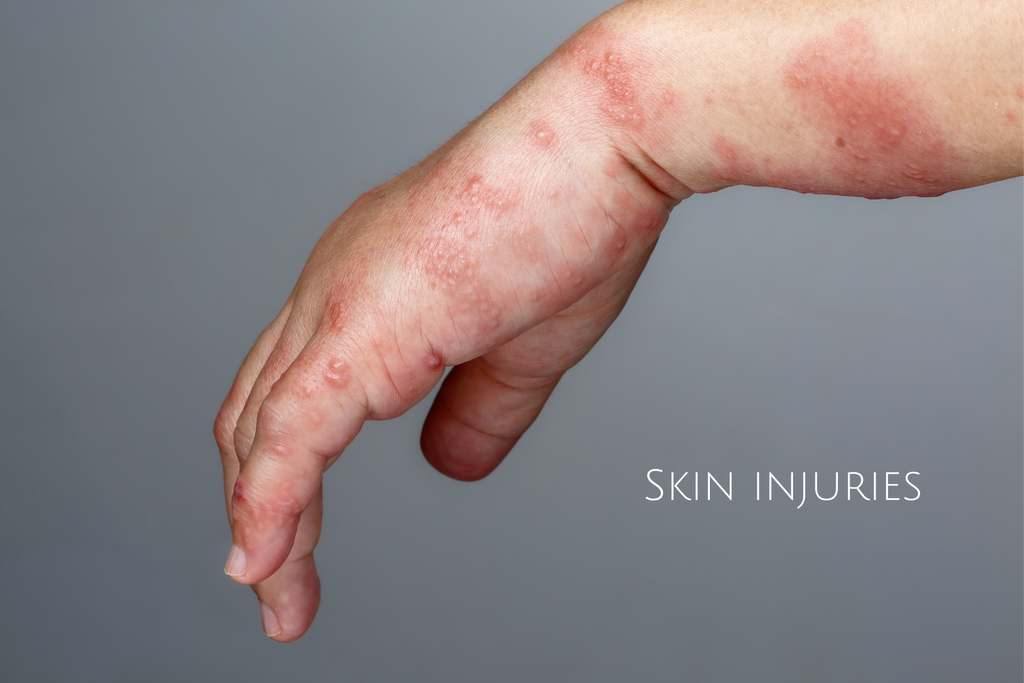
If you've had an injury, burn or Eczema, chemical exposure, or acne, you're more likely to suffer post-inflammatory hyperpigmentation after the initial wound is healed.
● Skin Inflammation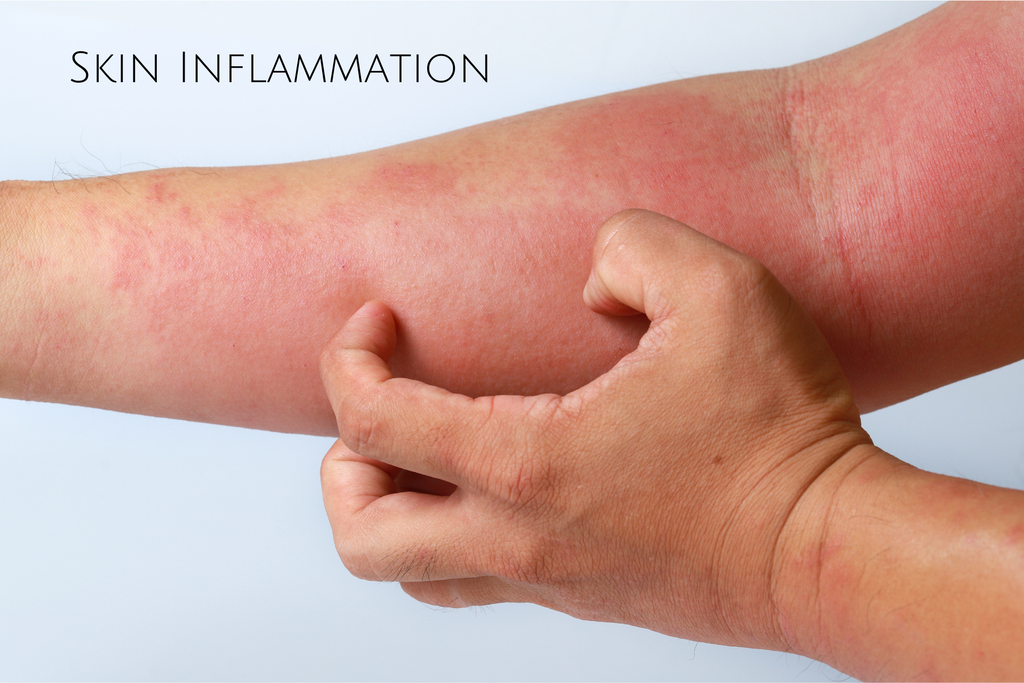
Another leading cause of hyperpigmentation can be trauma to the epidermis and dermis layers of skin can cause hyperpigmentation. When the epidermis becomes inflamed, melanocytes are stimulated to increase melanin production. Due to this procedure, the pigments are also transferred to nearby keratinocytes. The post-inflammatory skin pigmentation gets darker after prolonged exposure to sunlight. Therefore, sunscreen is the best measure to prevent the skin from becoming inflamed.
● Pimples and Acne
Another issue teenagers commonly face when they are in their teen years is acne and pimples. The rubbing of pimples or scratching acne areas results in a subsequent blemish. Therefore, try to keep them away. Acne and pimples can be prevented, saving your treatment costs for hyperpigmentation.
● Trauma to the skin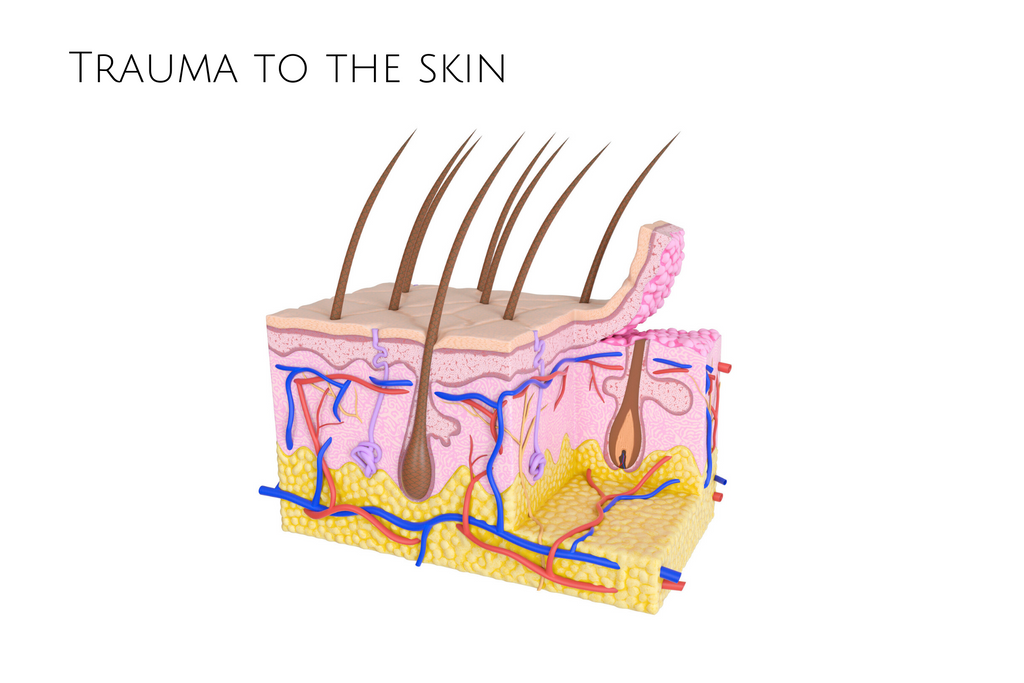
It is the topmost layer of skin, also known as the epidermis's bottom layer, that can get damage. This lets the pigments penetrate the skin and be stuck in the dermis layer of the skin. In the end, the pigmentation is less tolerant to treatments.
Types Of Hyperpigmentation And Their Symptoms
There are many kinds of hyperpigmentation. The common types of hyperpigmentation are here listed for you - melasma, sunspots, and post-inflammatory hyperpigmentation.
● Melasma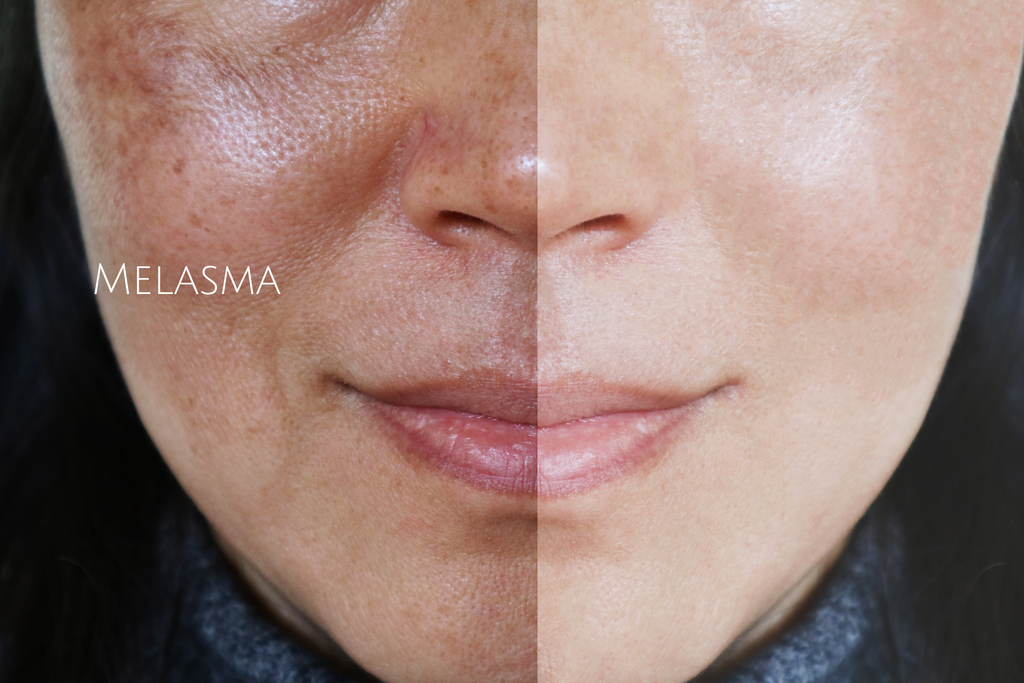
Melasma is a dark brown skin coloration seen in areas of sunlight exposure. Melasma can be seen anywhere on the body, but it is most commonly visible on the face. The condition is more common for women than men as it can also be seen after pregnancy in women due to hormone changes. The condition manifests as uneven brown spots on the forehead, cheeks, bridge of the nose, upper lip, and cheeks.
● Sunspots
Sunspots are dark, flat spots caused by exposure to sunlight and are sometimes referred to as age spots, lentigines, and liver spots. They are typically seen on the chest, face, and hands as signs of aging. These spots are usually harmless and often called liver spots or age spots. They usually show up as spots on areas exposed to sunlight, such as the face and hands. And don't worry, they can be treated easily.
● Hyperpigmentation post-inflammatory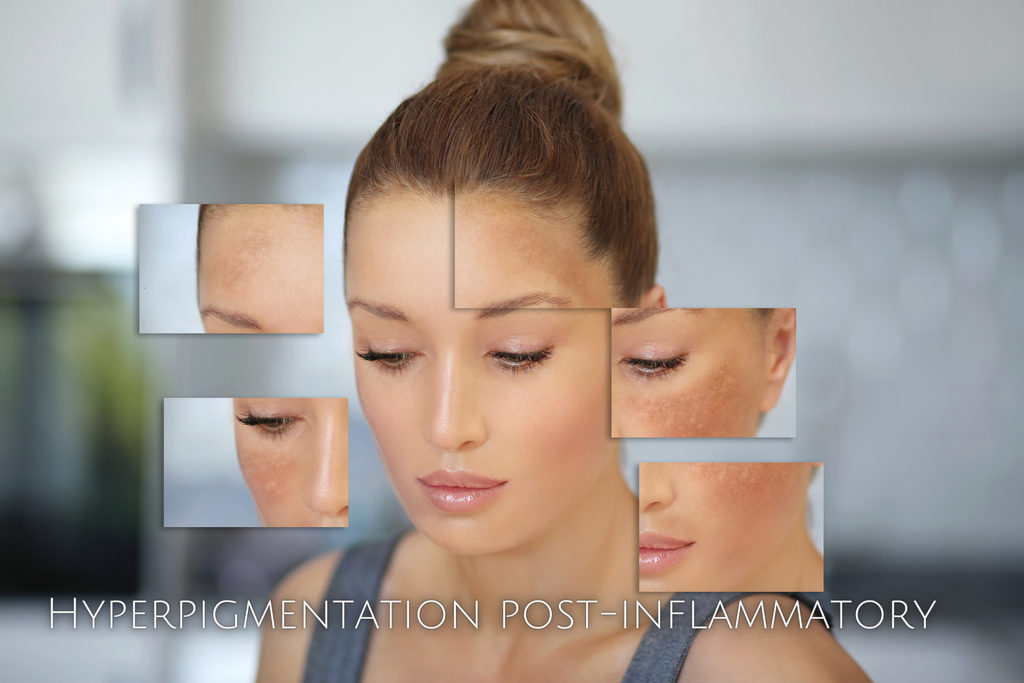
Post-Inflammatory Hyperpigmentation (PIH) is a dark spot on the skin that are by hyper melanosis after injuries or inflammation. It typically occurs after burns, acne and allergies, eczema, or even after treatments such as chemical peels. It is crucial to avoid sun exposure if PIH is present because it could cause the skin to become darker. PIH could disappear within a few weeks or remain for a long time until it is dealt with. Most often, PIH fade on its own.
Treatment for Hyperpigmentation
Topical creams
Hyperpigmentation can be treated well with topical creams. You will witness visible results after weeks or months of consistently using creams and serums.
Hydroquinone- Hydroquinone, a skin-lightening agent, reduces the level of melanin.
Azelaic Acid- Acne can cause inflammation and hyperpigmentation. Azelaic acid is a gentle exfoliant used to treat discoloration. It is one of the most effective and safest treatments for hyperpigmentation.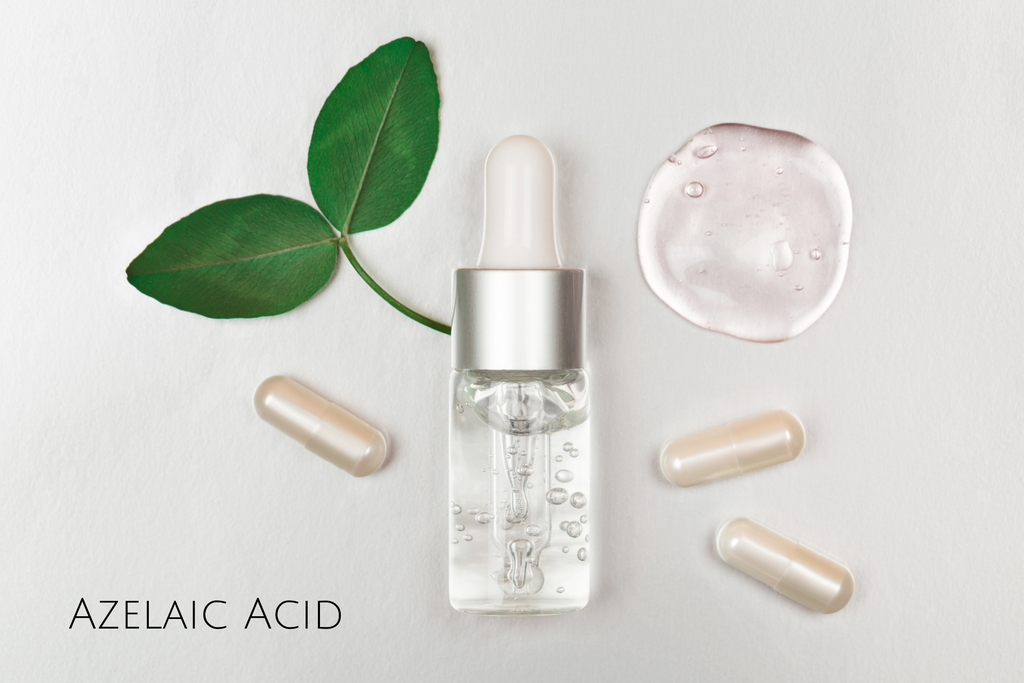
Kojic Acid- Kojic acid, a natural skin-lightening agent, is a fungus-derived compound. It prevents melanin production by inhibiting the production of tyrosine.
Retinoids- The term retinoids refer to vitamin A derivatives. The most common forms of retinoids include retinol, tretinoin, and others. These are known as miracle ingredients in skin care, with amazing benefits such as skin lightening and antiaging.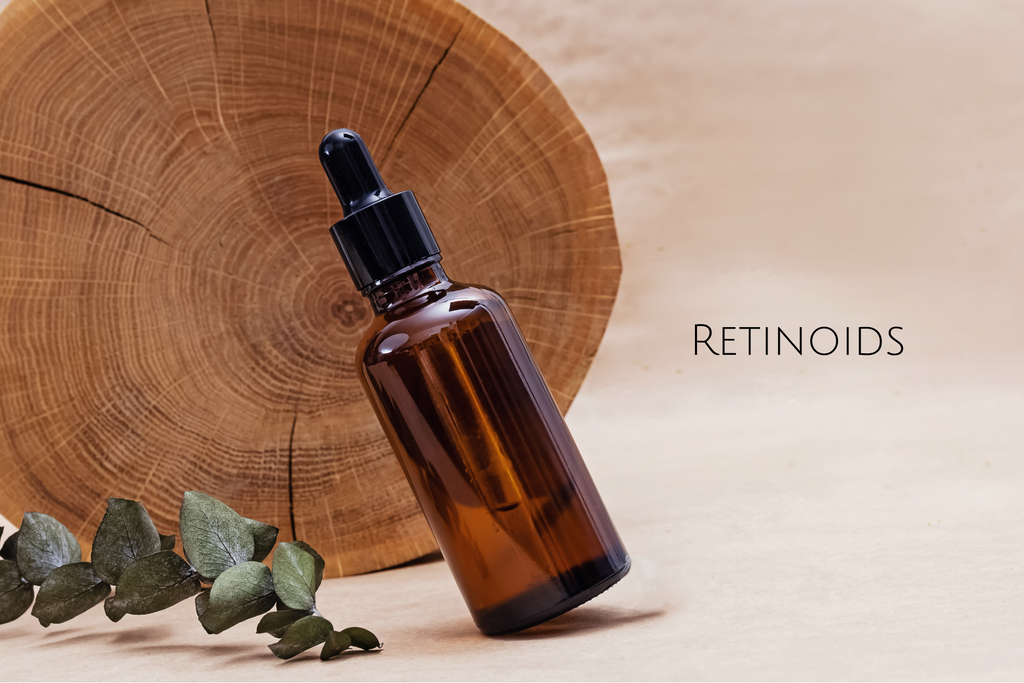
Vitamin C- Vitamin C, also known as ascorbic acid, is an antioxidant that helps reduce hyperpigmentation due to sun damage. It works by blocking the activity of tyrosinase, which is responsible for melanin.
Cosmetic Procedures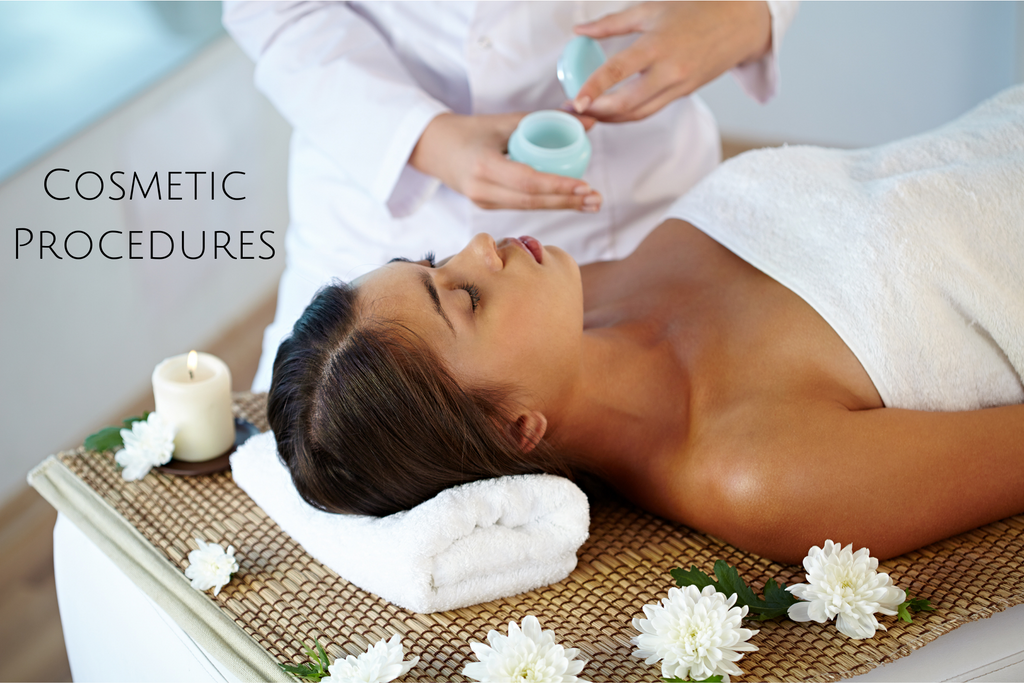
These procedures are typically performed by a dermatologist and require professional equipments. There are many options: Intense pulsed lighting h4 IPL (intense pulse light) and photo facials can be performed in a dermatologist's clinic or at a medical spa. Rapid flashes of light penetrate the skin to break down melanin. The melanin fragments rise to the surface.
-
Chemical Peels- Chemical peeling is a controlled chemical burning of the skin. Removing the skin's top layers uses chemicals such as lac acid or glycolic acid (alpha hydroxy acid). This removes dark spots and hyperpigmented skin and allows new skin cells to rise above the surface.
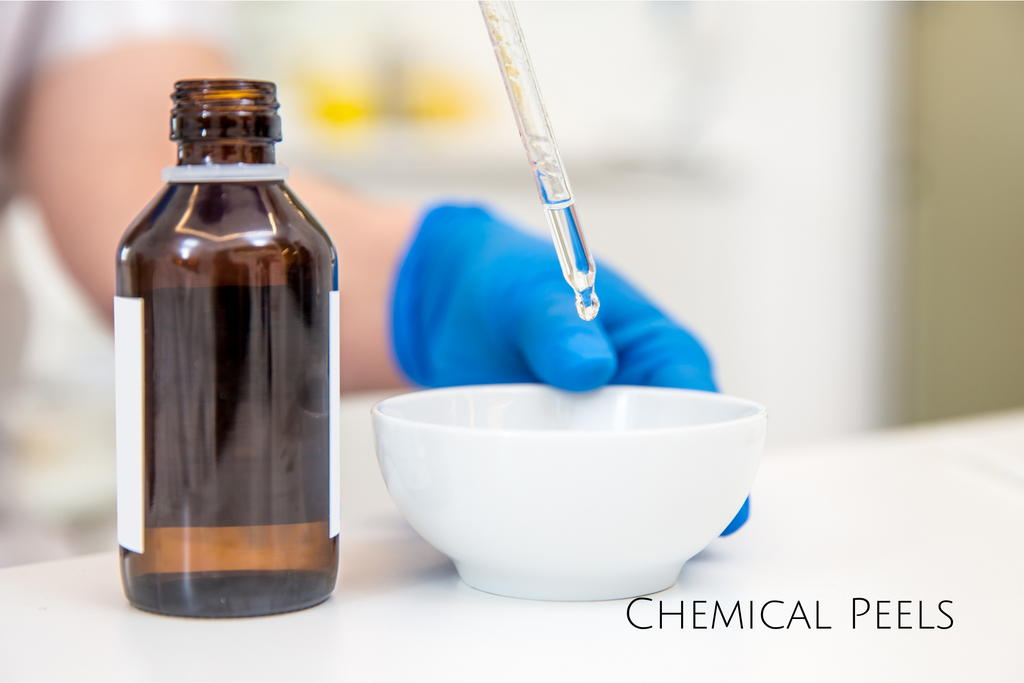
-
Laser Therapy- Laser resurfacing may be an option if your hyperpigmentation is more severe. To remove the epidermal layers, light beams are directed at the skin. See medical advice to determine if your skin is suitable for this type of laser therapy.
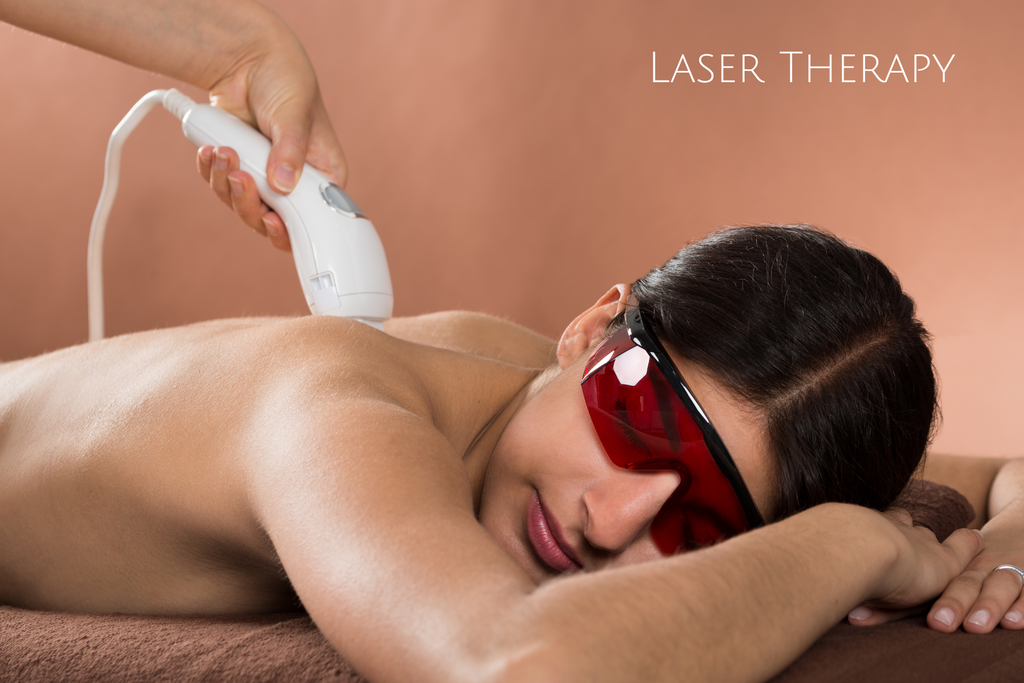
How To Treat Hyperpigmentation At Home?
Home remedies for hyperpigmentation can improve the appearance of dark patches on the skin. There are a variety of solutions like:
● Aloe Vera Gel:
The gel produced by the plant helps to treat a number of skin issues, including hyperpigmentation on the skin. Aloesin is an active ingredient in aloe that help prevent melanin production and hyperpigmentation of the skin. You can apply aloe gel to the affected area for the best results. You can even include aloe vera gel into your homemade masks for the face.
● Turmeric:
This homemade remedy can be beneficial in reducing the appearance of hyperpigmentation. Apply turmeric to the skin in the form of a facial mask. For making the facial mask, mix small quantities of honey, turmeric, and Greek yogurt and apply them evenly to your skin. Keep it for about 15 minutes, then rinse off using water.
● Pomegranate:
Pomegranate is highly beneficial in combating hyperpigmentation. Crush a handful of seeds and use it for the exfoliating mask. Be sure to massage gently as it could irritate the skin. It is also possible to use the skin oil of pomegranate. Apply the oil following cleansing, toning, and washing before moisturizing.
● Green Tea: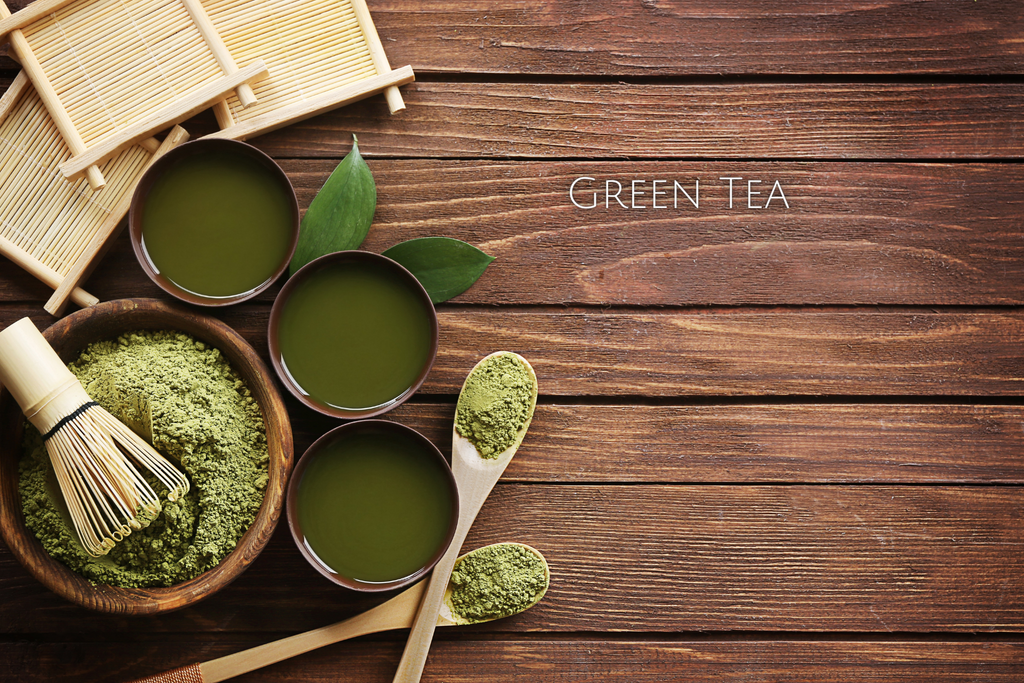
Loaded with antioxidant and anti-inflammatory properties, green tea can cause an improvement in skin tone while it assists in reducing hyperpigmentation. Make an herbal face mask using green tea, or incorporate green tea into your own homemade mask recipe.
● Rice Water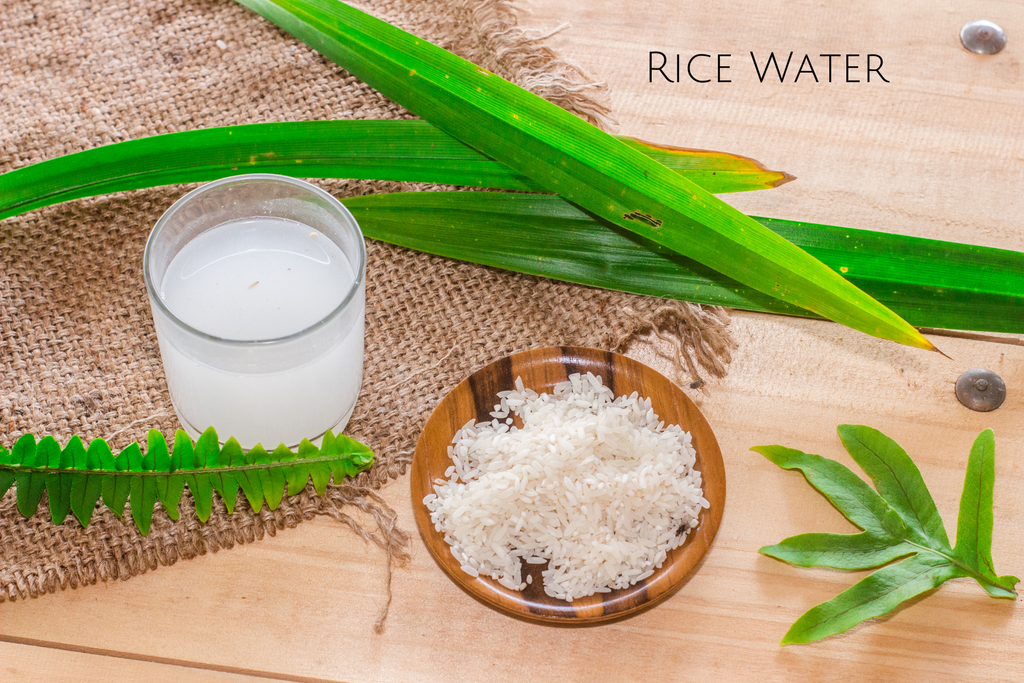
It is among the main ingredients in many Asian hair and skin treatments. Gel and cream formulations made from rice water have a wonderful skin-lightening effect. Rice water can be a beneficial solution to treat excessive pigmentation.
Key Takeaway
Hyperpigmentation is a harmless skin condition that causes skin discoloration. Some common types of hyperpigmentation include melasma, sunspots, and post-inflammatory hyperpigmentation. You can treat it with either some topical medicines or using chemical peels. You can avoid this skin condition by using sunscreen regularly, avoiding too much sun exposure, and following a good skin-care routine. Consult a dermatologist if you are concerned about hyperpigmentation. They can determine the root cause and recommend the best treatment.
Recent Posts
-
The Wellness Valentine: Valentine’s Day Gift Ideas for Health & Wellness Lovers
Introduction: Valentine's Day has evolved beyond traditional red roses and chocolate boxes. In today
-
AI-Nutrition & Microbiome Tracking: The Personalized Wellness Revolution for India
Introduction: Traditional nutrition and wellness have relied on a one-size-fits-all approach, offeri
-
The Gut-Brain Connection: How Your Digestive Wellness Affects Mood, Skin & Sleep
Introduction: The gut-brain connection is a fascinating and complex system that plays a significant





